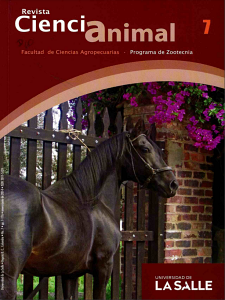Abstract
Systemic thinking is a comprehensive and holistic approach to the study and analysis of farming systems. Thirty seniors from the School of Zootechnics at La Salle University were trained using this methodology. Over the course of two weeks, the students developed face-to-face workshops on skills in the general systems theory and tools for systems analysis; then, they joined the internships programs for a period of four months, during which they received support and feedback to their process from their mentor; after finishing the internship, the methodology was evaluated through surveys. 73.3 % of the students believed that the work methodology allowed them to fully achieve the objectives established for the internship, while 26.7 % stated that the methodology contributed to partial fulfillment of the objectives. Most students (93.3 %) believed that the mentor’s visits to the internship location were the best form of support and feedback, followed by phone calls and virtual media (43.3 % and 33.3 %, respectively). 86.7 % of the students believed that the mentor’s visits to the internship location significantly contributed to the development and implementation of a coherent proposal to solve an issue that was found, while 13.3 % believed that the mentor’s contribution was acceptable. All students (100%) mentioned that a higher number of visits to the internship location by the mentor would contribute to a better analysis of the system and the training process.Downloads
Download data is not yet available.



